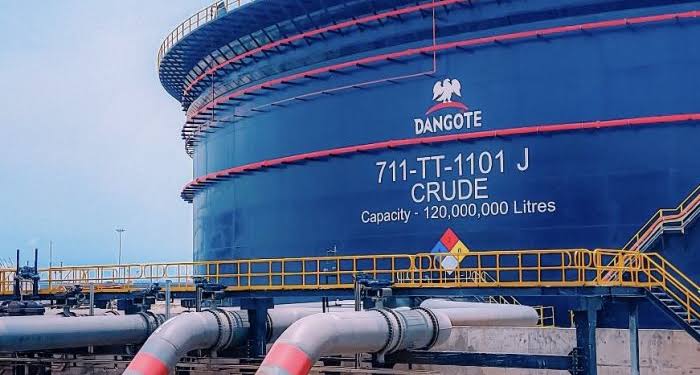
The Dangote Refinery was hailed as Nigeria’s hope for energy independence and economic revival.
Yet, as its first shipment of petrol sails to foreign shores, questions arise: Has the promise of progress slipped away, leaving Nigerians to bear the burden while others reap the benefits?

Nigerians initially greeted the announcement of the Dangote Refinery’s operations with hope.
For many, they saw it as the long-awaited saviour—a beacon to rescue the country from its dependency on imported petrol and ease its economic challenges.
However, this dream now risks slipping away, as the very petrol produced by the refinery is increasingly finding its way to other nations instead of meeting Nigeria’s own needs.
At the heart of the matter lies an agreement.
Unabated Importation
Many widely expected the Dangote Refinery to prioritise supplying locally refined petrol to stabilise Nigeria’s fragile economy.
Read Also; Dangote Refinery Shifts From Nigeria, Exports To West Africa
Yet, despite this understanding, the importation of fuel continues unabated, further exacerbating the country’s foreign exchange crisis.
This ongoing reliance on imported petrol and diesel, driven by Nigerian oil marketers, including the state-owned Nigerian National Petroleum Company Limited (NNPC), comes at a significant cost.
Consequently, Nigeria finds itself sinking deeper into economic turmoil, with immense pressure on the already weakened naira.
Meanwhile, the Dangote Refinery has taken its first bold step onto the global stage.
In a historic moment, it has made its maiden export, a shipment of 300,000 barrels of petrol aboard the CL Jane Austen, destined for the coast of Lomé.
This milestone signals a shift.
Also, it positions the refinery as a key player in West Africa’s energy market. It marks a significant achievement for the continent.
Nevertheless, for Nigerians, this triumph carries a bittersweet undertone.
While other nations begin to benefit from Dangote’s petrol exports, Nigeria risks missing out on what could have been a lifeline for its domestic economy.
Their unending wait is as a result of a back-and-forth between the NNPC and Dangote Refinery on the price of the petrol and distribution mode.
Now, as the refinery’s output sets sail to foreign shores, the NNPC’s persistent importation of fuel highlights a glaring missed opportunity to address the country’s energy needs from within.
A Hanging Promise
Ultimately, with the naira continuing to weaken and local fuel supply remaining uncertain, the question looms: will Nigeria harness the full potential of its prized refinery, or will it watch helplessly as other nations reap the rewards of its promise?